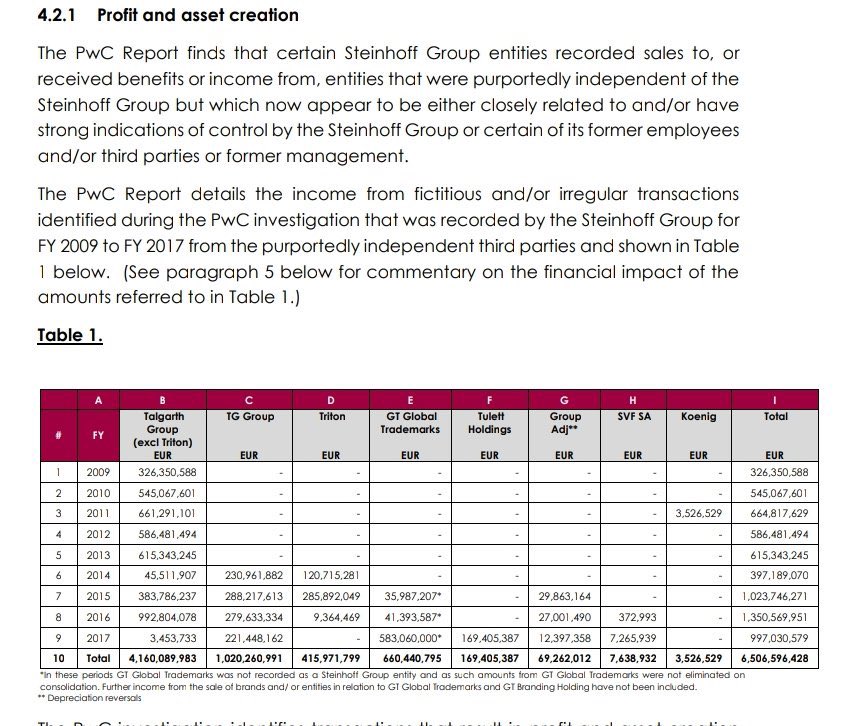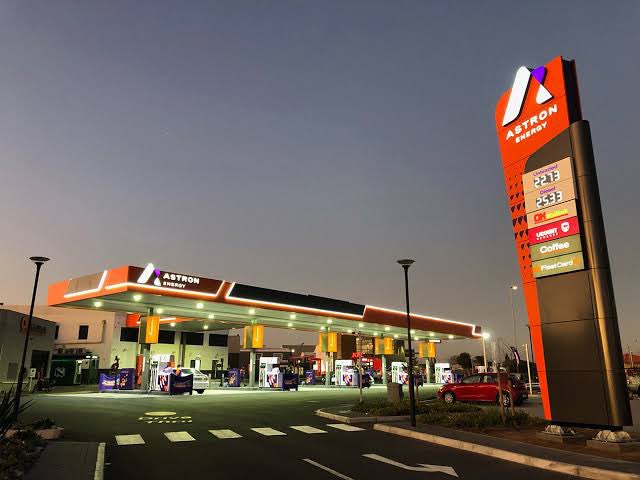The famous Forbes is going public.
Forbes and Magnum Opus Acquisition (a publicly-traded special purpose acquisition company) announced a $200 million strategic investment from Binance, one of the world’s largest cryptocurrency and blockchain infrastructure providers.
Short 🧵


Forbes and Magnum Opus Acquisition (a publicly-traded special purpose acquisition company) announced a $200 million strategic investment from Binance, one of the world’s largest cryptocurrency and blockchain infrastructure providers.
Short 🧵



Forbes has been seeking $400mn of additional capital through a private placement as part of its plans to list in New York via a merger with special purpose acquisition company Magnum Opus Acquisition Limited. 

Binance’s strategic investment will be through Binance’s assumption of subscription agreements representing $200 million of commitments in the $400 million private investment in public equity. 

Transaction values the combined company at an implied pro forma enterprise value of $630 million, net of tax benefits.
Transaction is expected to raise $600 million of gross proceeds consisting of the contribution of $200 million of cash held in Magnum Opus’ trust account.
Transaction is expected to raise $600 million of gross proceeds consisting of the contribution of $200 million of cash held in Magnum Opus’ trust account.

A Special Purpose Acquisition Company (SPAC) is formed and listed on a stock exchange specifically to raise capital through an initial public offering (IPO), in order to fund the acquisition of one or more existing companies or other assets. 

Assuming no redemptions by the public shareholders of Magnum Opus, Forbes shareholders will own approximately 22% of the combined company at the close of the deal.
Forbes will be capitalized with up to $145 million in cash.
Forbes will be capitalized with up to $145 million in cash.
In 2020,Binance, one of the world’s largest crypto exchanges, sued Forbes for defamation over an investigation by the magazine that said the crypto group used its complex corporate structure to intentionally evade US regulation, claims that Binance denied.
Now they are "dating".
Now they are "dating".
Forbes’ existing management team, all of whom have been instrumental in Forbes’ digital transformation and recent record business results, will continue to manage the combined company upon completion of the transaction under the leadership of Chief Executive Officer Mike Federle.
As part of this transaction, Patrick Hillmann, Chief Communications Officer for Binance and Bill Chin, Head of Binance Labs (Venture Capital Arm and Incubator of Binance) will join the Forbes Board of Directors upon the successful closing of the business combination transaction.
In 2006, Elevation Partners, a private equity fund paid $240 million for a 45% in Forbes which valued Forbes Media at $533 million.
Forbes family retained the remaining stake.
A crazy transaction happened in 2014 which saw Elevation Partners exiting and Forbes Family owning 5%.
Forbes family retained the remaining stake.
A crazy transaction happened in 2014 which saw Elevation Partners exiting and Forbes Family owning 5%.

Integrated Whale bought 95% of Forbes Media from Elevation Partners and Forbes Family in a deal that valued Forbes Media at $475m.
Payment of stake; 80% in cash +
15% via vendor finance.
Integrated Whale borrowed an undisclosed amount from the Forbes family to finance the 15%.
Payment of stake; 80% in cash +
15% via vendor finance.
Integrated Whale borrowed an undisclosed amount from the Forbes family to finance the 15%.

Example of a typical vendor financing arrangement.
X Ltd needs sells 5% shares to a consortium.
Buyers don’t have the money to buy the 5% stake.
X Ltd then sells and simultaneously lends buyer money to buy the shares.
Buyers use dividends to repay the debt and the interest.
X Ltd needs sells 5% shares to a consortium.
Buyers don’t have the money to buy the 5% stake.
X Ltd then sells and simultaneously lends buyer money to buy the shares.
Buyers use dividends to repay the debt and the interest.
Barely 18 days after the sale closed, the Forbes Family sued Integrated Whale alleging that they have refused to pay a substantial portion (an interest payment of $40,000) of the promised price.
Forbes is famous for its "prestigious" lists.
Which Forbes List do you look forward to or go through the most?
Which Forbes List do you look forward to or go through the most?
• • •
Missing some Tweet in this thread? You can try to
force a refresh









